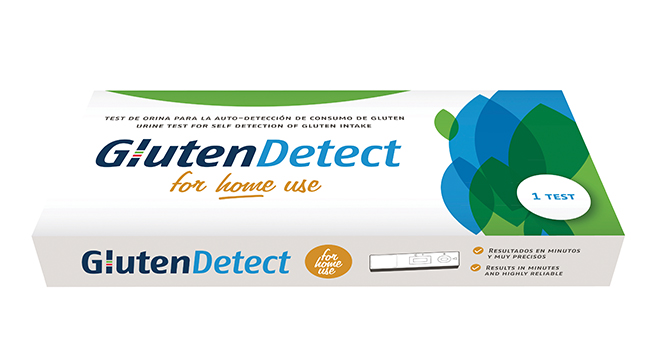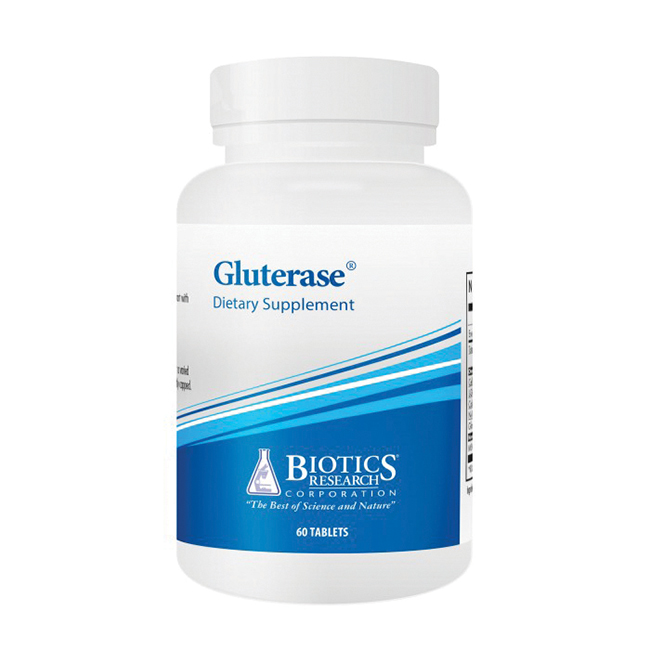Ever wondered if there was something that could help you if you’ve accidentally consumed gluten? Christine Bailey may just have the answer…

Whether you are coeliac or gluten sensitive, it’s not always easy to ensure your diet is 100% gluten-free. Although the home setting can be fairly well controlled by eliminating gluten-containing products or utilising cooking strategies to separate gluten-containing foods from gluten-free products, many restaurants and homes of friends and family often are not as experienced in making sure there is no contamination.
Travelling can be another source of stress. Everything from the airplane flight, snacks at cafes en route, hotel meals and buffets all increase the risk of accidental exposure. In these situations, your health (and enjoyment) can be significantly compromised. Children and teenagers are particularly at risk – think birthday parties, eating out with friends, school trips, sleepovers etc. The worry of being glutened and suffering as a consequence may even lead you to avoid certain social situations where food is involved.
The sensitivity of a gluten reaction can vary from person to person. But even if you do not appear to suffer after being accidentally exposed to gluten, the research does suggest that even very small amounts of gluten can provoke significant immune reactions. So, what do you do if you suspect you have been glutened?
One popular strategy is to take a digestive enzyme supplement during or soon after the suspect meal, that is specifically designed to aid the rapid degradation of gluten. While this does not mean you can start eating gluten again, it can help quickly clear gluten from the body and reduce the likelihood of symptoms and damage.
One of the key enzymes is Dipeptidyl peptidase IV (DDP IV). This is known as an exo-peptidase enzyme and is involved in breaking down proline-rich proteins such as gliadin. On its own DPPIV will not fully break down all the gluten peptides. This is because as an exo-peptidase enzyme it acts only on the terminal peptides of gliadin. It needs to be combined with enzymes that can break down the internal bonds of gliadin too. Thankfully, combination formulas are now available and have been shown in various published trials to be effective.
In a clinical trial by researchers at Kennesaw State University using a combination formula called Glutalytic®, people with a gluten sensitivity were given the enzyme to monitor the effects on accidental exposure to gluten. This double-blind trial showed statistically significant improvements in a wide variety of common digestive issues while taking the enzyme. Other studies have shown the formula can reduce levels of deamidated gliadin IgA antibodies and markers of inflammation due to accidental exposure. It has also found that those with coeliac disease experience significantly less digestive symptoms such as abdominal pain and bloating when taking the supplement, even with their regular gluten-free meals.
Why does it help?
Taking such an enzyme with meals enables the rapid degradation of gluten. Gliadin, the major immune eliciting protein fraction in gluten, can therefore be degraded down from gram to milligram quantities by the time it reaches the small intestine, meaning less risk of damage or symptoms appearing. This may be particularly beneficial in the few months following diagnosis.
Firstly, it can be difficult to adjust to a gluten-free diet and mistakes can happen. But studies have also found that a decrease in intestinal DPP IV enzyme activity correlates with the level of mucosal damage in patients with coeliac disease and other malabsorption syndromes. The level and activity of other digestive enzymes found on the brush border and secreted by the intestinal epithelial cells are also decreased with mucosal damage, which is most noticeable around the time of diagnosis. For this reason, many coeliacs or those with gluten sensitivity like to take a gluten-digesting enzyme with their meals to help digestion, or when travelling and eating out to reduce the risk of being glutened.
Remember that these enzyme supplements do not mean you can put gluten back in your diet, but it may help avoid suffering due to unexpected ingestion of gluten.
Can you test for accidental gluten exposure?
GlutenDetect is a brand new, self-test which can identify whether someone has unknowingly or accidentally consumed gluten. This new test works just like a pregnancy test and provides you with instant results. There are two options: a urine test which detects gluten consumed within 24 hours, and a stool test which detects gluten consumed within 7 days. Both are simple and easy to use at home without needing a health professional’s guidance.
These tests can be ideal for anyone who travels a lot, likes eating out, or is unsure about cross-contamination in various locations, or simply to confirm a gluten-free diet is being adhered to.
Where to buy
Gluten Detect Kits

GLUTEN-FREE HEAVEN READERS CAN GET 25% off the price of Gluten Detect Kits. Quote Code FREEFROM. Expiry: December 21st . 1 per customer
Digestive enzyme supplement

Gluterase by Biotics Research is available from Nutri Link 08450 760 402. www.nutri-link.co.uk quote FFHM to order
References
Thoma R, et al. Structural basis of proline-specific exopeptidase activity as observed in human dipeptidyl peptidase-IV. Structure. 2003 Aug;11(8):947-59.
Janssen G, et al. Ineffective degradation of immunogenic gluten epitopes by currently available digestive enzyme supplements. PLoS One. 2015 Jun 1;10(6):e0128065.
Janssen G, et al. Ineffective degradation of immunogenic gluten epitopes by currently available digestive enzyme supplements. PLoS One. 2015 Jun 1;10(6):e0128065.
Hudson M, King C. Glutalytic Clinical Trial for Normal Consumption of Gluten Containing Foods. Unpublished.
Deaton J, Labellarte G. Tolerance and Efficacy of Glutalytic® A Randomized, Double-Blind, Placebo-Controlled Study. Unpublished.
